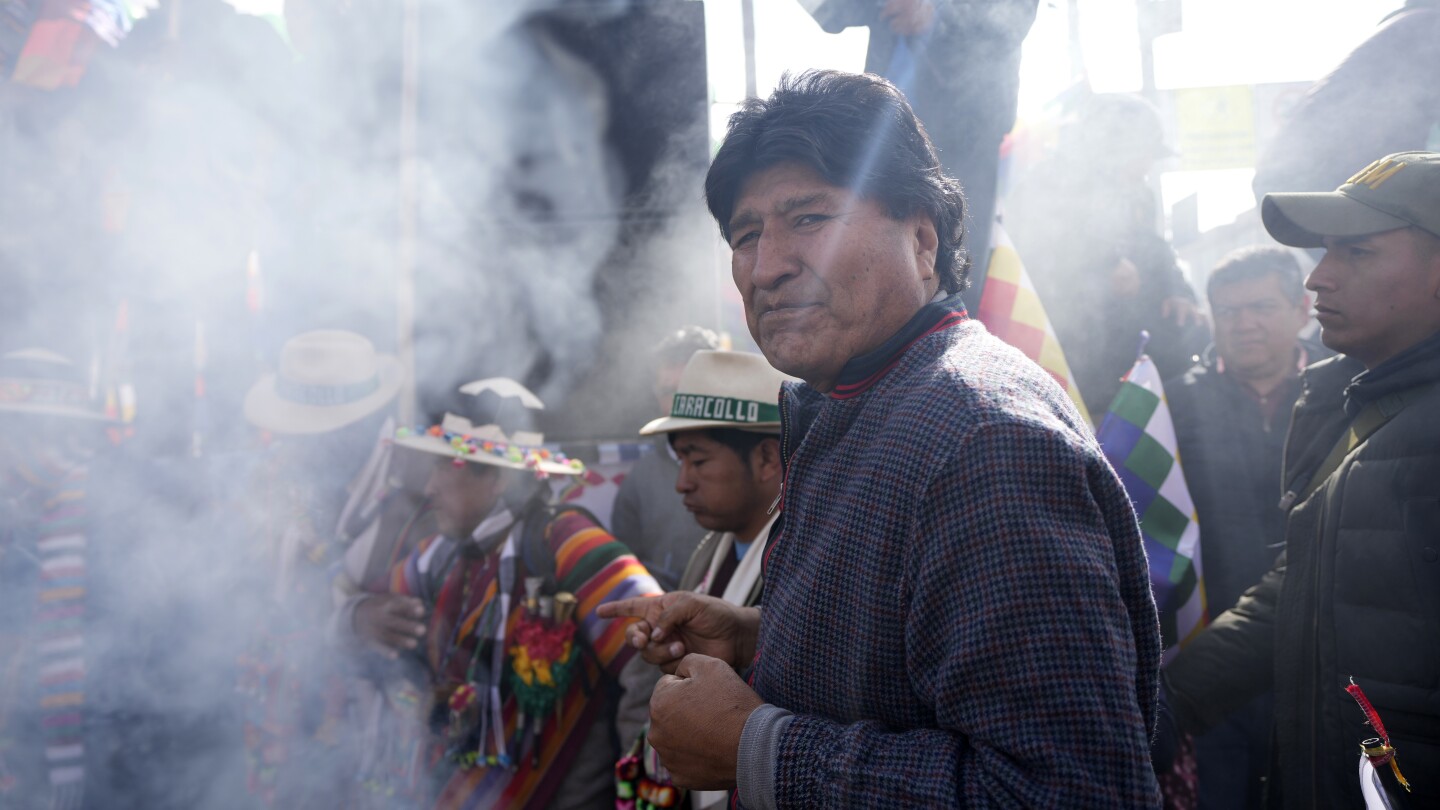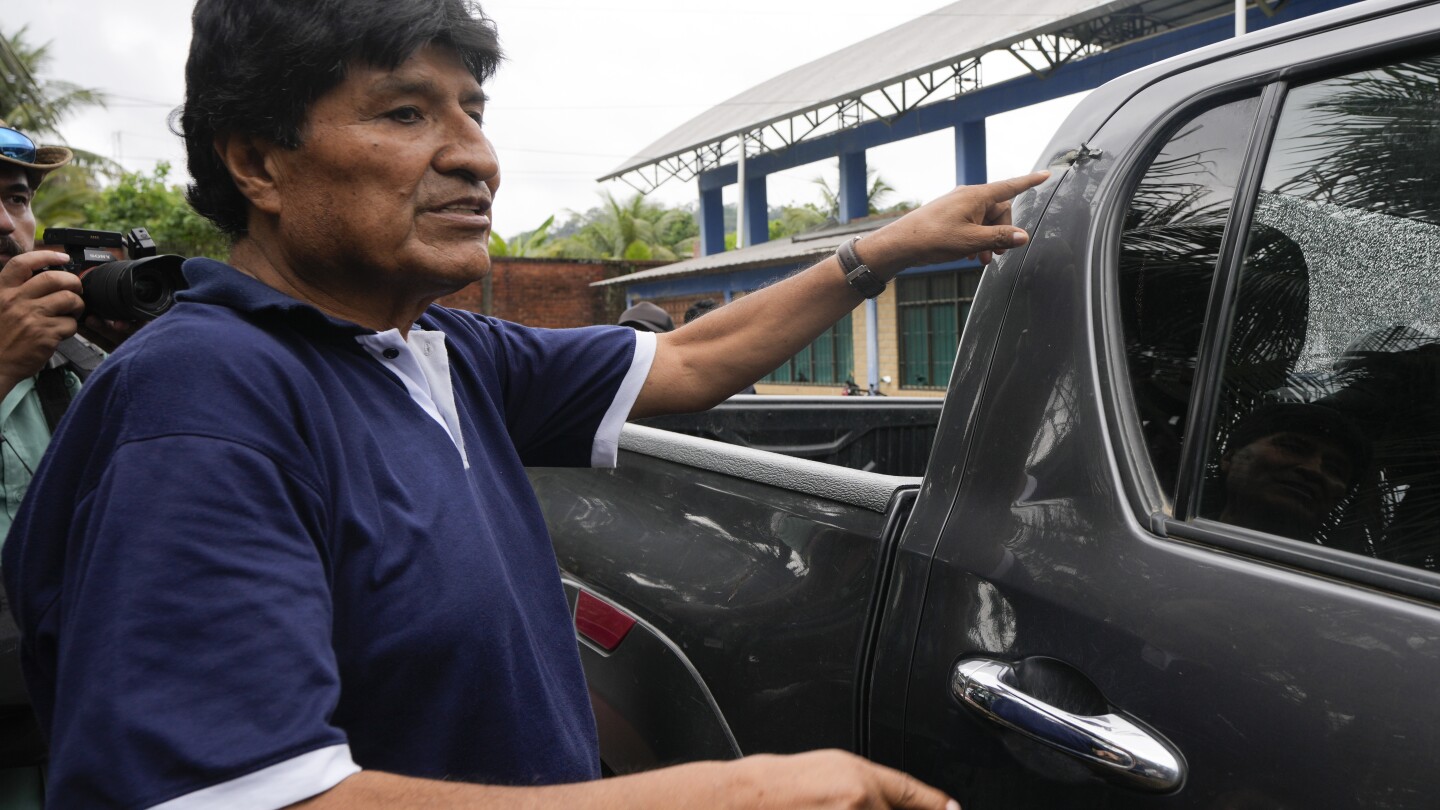The Latin American Report # 400
 Source
SourceBolivian President Luis Arce on Monday fueled the narrative that Evo Morales is a “pedophile”, claiming that the former president and veteran coca growers' union leader's alleged sexual proclivities were “common knowledge”. Morales was formally accused of having relations with a 15-year-old girl—back in 2016—who belonged to a youth movement associated with his political organization and specifically attached to him. In practice, the teenager's parents allegedly gave her to the then president in exchange for political perks, and a daughter was born as a result of the relationship.
In Bolivia, the crime of statutory rape with which Morales is charged comprises those who “by means of seduction or deception, [have] carnal access with a person of either sex over fourteen (14) and under eighteen (18) years of age”, and is punishable by imprisonment of three to six years. The Dictionary of the Royal Spanish Academy defines statutory rape as “sexual intercourse with a person over 12 and under 18 years of age, taking advantage of superiority, arising from any relationship or situation”. A report signed by several civil society organizations understands it as carnal access resulting from the abuse of a relationship of trust or authority. Consent to the sexual act can be claimed, but it ends vitiated by certain circumstances or intentions that make it subject to prosecution.
 Source
SourceArce has also been accused of statutory rape, although—it seems—as part of an orchestrated counterattack by Morales, who presents his judicial nightmare—including the blocking of his presidential candidacy—as a manifestation of lawfare. The evistas forces reinforced yesterday Tuesday the security detail around the former president, barricaded in Kawsachun Coca—the radio station that serves him as loudspeaker in the Tropic of Cochabamba—to prevent the execution of an arrest warrant against him. He can´t leave the country. His followers warn that “there will be blood”—and it seems they are serious—if security forces dare to arrest him. The alleged statutory rape case referred to here—confirmed by the father of the alleged victim, at least indirectly—is not the only one eating away at Morales' weak political position right now.
How much is true and how much is a lie in all this is a difficult question to answer in times when the lack of integrity tends to characterize the actions of the actors involved in the political struggle. The fierce infighting between Arce and Morales has come to darken a socioeconomic scenario already quite rarefied in Bolivia, a nation stressed by a weak output in gas production, the chronic lack of foreign currency—partly driven by the above—, and the cyclopean effort to supply the fuel market. The most logical thing, thinking in electoral matters, is that the people charge the MAS for the unbearable lines at the gas stations and the galloping inflation. It is not that Bolivians have “overcome” 2024, as Arce suggests, but that they have hardly “survived” to it.
 Source
SourceParaguay hits hard at criminal structures linked to marijuana trafficking
In less than 72 hours the Paraguayan authorities have presented significant results in the battle against drug trafficking, a task that has certainly had a very good performance after the arrival to power of the interesting conservative Santiago Peña. Last Monday it was reported the seizure of nearly 9 tons of marijuana in an operation in which two armed individuals, from Brazil and Paraguay respectively, were arrested. The main destination of marijuana processed in Paraguay is the Brazilian market.
Then yesterday, Tuesday, it was reported the seizure of 57 tons of pressed marijuana, a record-breaking volume, in a mega-operation in the department of Canindeyú that involved a shootout and resulted in the arrest of four people. “This is a recent demonstration of the Paraguayan government's commitment to a frontal fight against organized crime,” Peña defended from the region where the operation took place. If it had landed on the Brazilian market, the intercepted drugs would have a value of US$22 million. Paraguayan security forces also seized vehicles, firearms and ammunition. And early Wednesday morning, another seizure was reported, but this time of cocaine—430 kilograms—presumed to be shipped to the old continent.
Récord de Marihuana Prensada incautada en tránsito 👊🏽🇵🇾
— SENAD Paraguay (@senad_paraguay) December 24, 2024
Operación #MARANGATU
En conjunto con el @CODI_FTC realizamos una incursión aérea y terrestre para interceptar un convoy narco.
Incautamos 48 toneladas de marihuana y capturamos a 4 personas tras un enfrentamiento. pic.twitter.com/IkRQlrhGrX
On the same issue, yesterday more than 1.25 tons of cocaine were also seized in the bloody coastal city of Guayaquil, Guayas province, Ecuador. The drug had as final destination the port city of Vigo in Spain, where it would have a value of more than 31 million dollars.
Haiti: three pieces of bad news in one day
It did not seem necessary to do so much damage—in less than 24 hours—for a nation mired in a long breakdown between the lack of democracy and food and the abundance of violent deaths and other tragedies. First, a more detailed balance sheet was shared on the death toll—more than 207—which resulted from a massacre that lasted from the 6th to the 11th of this month in the Cité Soleil slum. The leader of a major criminal gang operating in the Wharf Jérémie area ordered the indiscriminate slaughter of elderly alleged voodoo practitioners, who, according to his twisted narrative, caused the death of his son. Some were shot, others were hacked to death with machetes.
Meanwhile, in the capital Port-au-Prince the powerful gang syndicate operating under the aegis of alias Barbecue prevented the reopening of the critical General Hospital, killing two journalists and a policeman and injuring others prior to the start of the event. Finally, floods caused by torrential rains associated with a seasonal cold front resulted in the death of at least 13 people and significant damage to housing infrastructure—in four northern departments—in the last 72 hours. In some areas, chronic health problems are surging again.
Hundreds of homes were destroyed as deadly floods wreaked havoc in the town of Port-de-Paix in Haiti pic.twitter.com/pLAnGAChgq
— Reuters (@Reuters) December 25, 2024
And this is all for our report today. I have referenced the sources dynamically in the text, and remember you can learn how and where to follow the LATAM trail news by reading my work here. Have a nice day.

